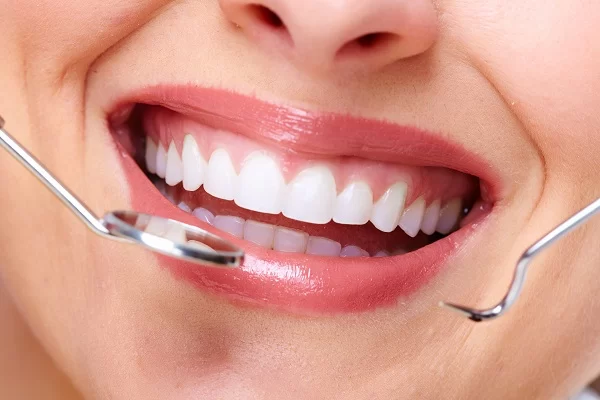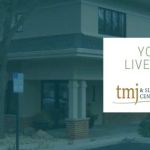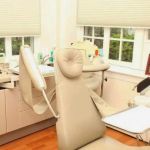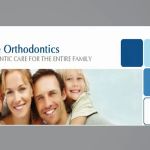
Managing Age-Related Dental Conditions: A Personal Journey to Better Oral Health
As we age, our bodies undergo various changes, and our dental health is no exception. For many of us, dealing with age-related dental conditions becomes a part of everyday life. I’ve personally experienced how our teeth and gums require extra attention as we grow older, and through this journey, I’ve learned several key ways to manage these challenges effectively. If you’re an older adult or care for someone who is, this guide will provide helpful insights into maintaining oral health well into your senior years.
1. Understanding Common Age-Related Dental Conditions
One of the first things I realized as I began noticing more dental issues in my later years was that certain conditions are more common as we get older. Let’s explore some of these issues:
Dry Mouth
Dry mouth, also known as xerostomia, is one of the most prevalent dental conditions affecting older adults. It occurs when the salivary glands don’t produce enough saliva, leaving the mouth feeling dry and uncomfortable. For many seniors, this can be a side effect of medications they take for other health conditions, such as high blood pressure or diabetes. Without enough saliva, the risk of tooth decay and gum disease increases significantly.
Gum Disease
Another issue I’ve encountered in my dental journey is gum disease, which becomes more common with age. As we age, our gums can recede, and plaque buildup can lead to gingivitis or more severe periodontal disease. I learned that regular brushing and flossing, along with routine dental cleanings, are essential to combat gum disease and preserve my oral health.
Tooth Loss
Tooth loss is another unfortunate reality for many seniors. Over time, teeth may weaken, crack, or fall out due to a variety of factors, including poor oral hygiene, genetics, or untreated dental conditions. I’ve found that preventive measures like good dental hygiene, regular checkups, and addressing issues early can reduce the risk of tooth loss as we age.
2. Practical Tips for Maintaining Oral Health in Older Adults
Managing age-related dental conditions doesn’t have to be overwhelming. By adopting a few simple practices, we can maintain healthy teeth and gums as we age. Here are some tips that have made a difference in my own life:
Brush and Floss Regularly
Good oral hygiene is the foundation of healthy teeth and gums. I make sure to brush my teeth at least twice a day, using a soft-bristled toothbrush to avoid damaging my gums. I also floss daily to remove food particles and plaque from between my teeth, areas that my toothbrush can’t always reach. Regular brushing and flossing help prevent plaque buildup, which is a major cause of both tooth decay and gum disease.
Hydrate Often
If dry mouth is a concern, staying hydrated is crucial. Drinking water throughout the day helps keep my mouth moist and promotes saliva production. For added moisture, I also use sugar-free saliva substitutes, which are available at most pharmacies. Avoiding alcohol and caffeine, both of which can dry out the mouth, has also been beneficial for me.
Visit Your Dentist Regularly
Routine dental checkups are vital for older adults. I’ve found that visiting my dentist every six months, or more frequently if recommended, has helped me catch dental issues early. During these visits, my dentist can perform professional cleanings to remove plaque and tartar buildup, which is essential for preventing gum disease and cavities.
Use Fluoride Products
Fluoride is an important mineral that helps prevent tooth decay by strengthening tooth enamel. In my experience, using fluoride toothpaste and mouth rinses has been an effective way to keep my teeth strong and resistant to cavities. My dentist also recommended fluoride treatments during cleanings, which have been beneficial for maintaining my dental health.
3. Specialized Treatments for Seniors
As we age, it’s important to consider treatments that address specific dental issues faced by seniors. I’ve explored some of these options and have found them incredibly helpful in managing age-related dental conditions.
Dental Implants
For those of us who have lost teeth, dental implants are an excellent solution. I was initially hesitant about the procedure, but after consulting with my dentist, I decided to move forward with implants. These provide a permanent and natural-looking solution for replacing missing teeth and restoring function. I can now enjoy my favorite foods again without worrying about gaps in my smile.
Dentures
If dental implants aren’t an option for you, dentures can offer a great alternative for restoring your smile. I have several friends who wear dentures, and they’ve been happy with how well they fit and function. Dentures can be full or partial, depending on how many teeth need replacing, and they provide a comfortable and functional solution to tooth loss.
Oral Cancer Screenings
Another important aspect of senior dental care is regular oral cancer screenings. As we age, the risk of developing oral cancer increases, especially for those who smoke or drink alcohol. During my dental checkups, I make sure my dentist performs an oral cancer screening to catch any potential issues early. Early detection can save lives, and it’s something every senior should prioritize.
4. A Personal Story of Overcoming Dental Challenges
I’d like to share a personal experience to illustrate the importance of managing age-related dental conditions. A few years ago, I started experiencing gum sensitivity and noticed that my gums were receding. At first, I didn’t think much of it, but as the discomfort increased, I decided to see my dentist. It turned out I had early-stage gum disease, and if left untreated, it could have progressed into something much worse.
My dentist explained that regular cleaning and a better oral care routine were necessary to halt the disease’s progression. I took their advice to heart, made some changes to my habits, and started using a mouthwash designed to fight gum disease. After several months of diligent care, my gums began to improve, and the sensitivity faded. This experience taught me the importance of proactive dental care and regular checkups.
In the end, managing age-related dental conditions is not as difficult as it seems. With the right approach, we can maintain healthy teeth and gums well into our later years. Whether it’s staying hydrated, brushing and flossing regularly, or seeking specialized treatments, taking charge of our dental health can lead to a lifetime of smiles.







 Light Dental Studios of University Place4.0 (279 review)
Light Dental Studios of University Place4.0 (279 review) TMJ and Sleep Center3.0 (23 review)
TMJ and Sleep Center3.0 (23 review) Dr. Angela M. Stout5.0 (2 review)
Dr. Angela M. Stout5.0 (2 review) George Orthodontics4.0 (55 review)
George Orthodontics4.0 (55 review) Gibbs & Martin Dentistry0.0 (0 review)
Gibbs & Martin Dentistry0.0 (0 review) Southern Maine Orthodontics: Gorham Location5.0 (14 review)
Southern Maine Orthodontics: Gorham Location5.0 (14 review) The Importance of Oral Health Education During Pregnancy for a Healthy Pregnancy
The Importance of Oral Health Education During Pregnancy for a Healthy Pregnancy Best Tips for Brushing Your Teeth Properly for Healthy Gums: Essential Techniques for Oral Health
Best Tips for Brushing Your Teeth Properly for Healthy Gums: Essential Techniques for Oral Health Why Skipping Dental Checkups Can Lead to Bigger Oral Health Problems
Why Skipping Dental Checkups Can Lead to Bigger Oral Health Problems Advantages of Porcelain Dental Restorations
Advantages of Porcelain Dental Restorations How Can Diabetes Cause Tooth and Gum Problems? Preventing and Managing Oral Health Issues
How Can Diabetes Cause Tooth and Gum Problems? Preventing and Managing Oral Health Issues Healthy Habits for Promoting Good Oral Health and Hygiene: Tips for a Healthy Smile
Healthy Habits for Promoting Good Oral Health and Hygiene: Tips for a Healthy Smile